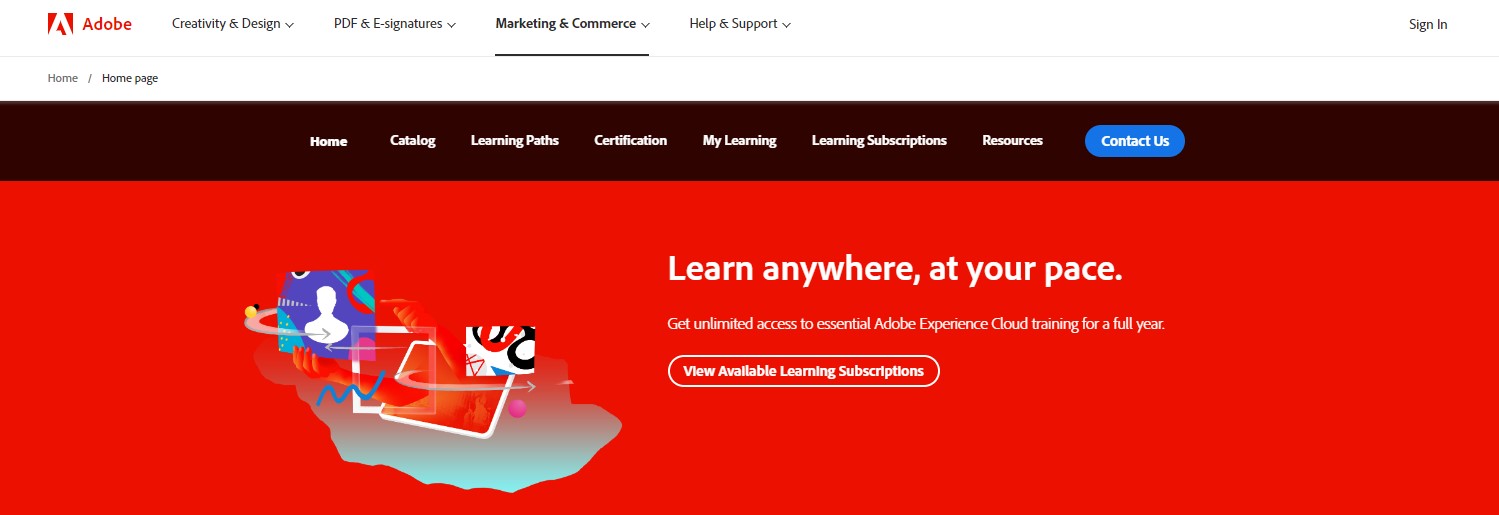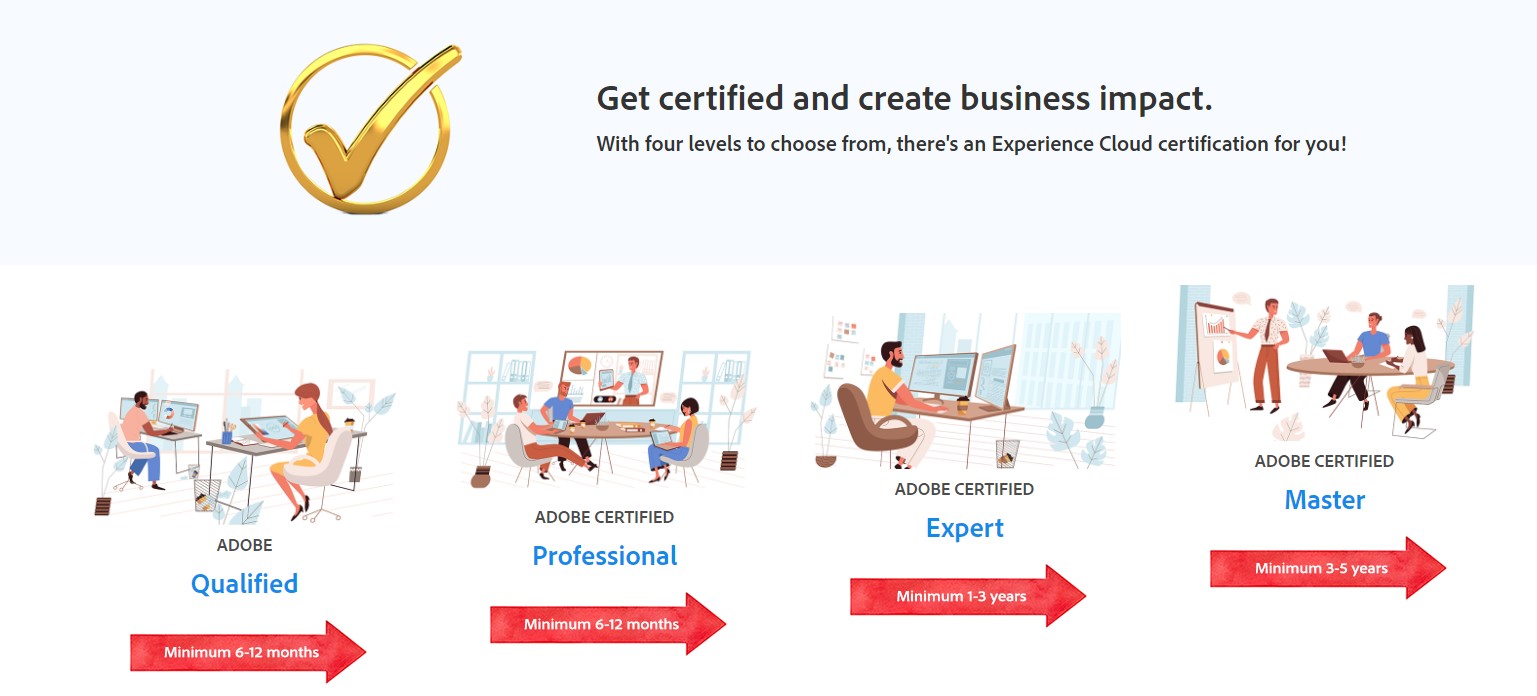Are you fascinated by the world of e-commerce and the technology driving it? If you’ve ever envisioned yourself as a key player in developing online stores and shaping the digital shopping landscape, then the path to becoming a Magento developer is your gateway.
In this guide, we’ll walk you through the steps and essentials to kickstart your journey toward becoming a proficient Magento developer. Whether you’re already familiar with coding or just starting out, we’re here to help you get on the road to mastering one of the most powerful e-commerce platforms on the market.
How to Become a Magento Developer
Becoming a Magento developer is an exciting journey that can lead to a fulfilling career in the world of e-commerce and web development. Magento is a popular e-commerce platform that powers a large number of online stores, putting Magento developers in high demand. If you’re interested in becoming a Magento developer, here are the steps you can follow to achieve your goal:
1. Education and Background
To become a Magento developer, you don’t necessarily need a formal computer science degree, but having one can be advantageous. Alternatively, you can opt for coding boot camps or online courses, which offer specialized training in web development.
You can also transition into this field from other backgrounds like marketing, design, or business. However, you’ll need to invest time in learning programming languages and web development skills.
2. Master Key Programming Languages
Magento is primarily built on PHP and JavaScript, so it’s essential to gain proficiency in these languages. Understanding XML is also crucial since Magento extensively uses XML for configuration. Fortunately, if you’re already familiar with HTML, learning XML should be relatively straightforward.
3. Develop Database Skills

Since Magento uses MySQL as its primary database management system, it’s vital to become proficient in MySQL. Understanding database management is crucial for managing and optimizing e-commerce websites.
4. Learn How Magento Works
The best way to understand Magento is to dive right in. Follow these steps to familiarize yourself with the platform:
- Install a Test Version: download and install a test version of Magento. This hands-on experience will allow you to explore the platform and its features.
- Create Products and Rules: use the test environment to create products, set up shipping, and define pricing rules within the catalog and cart regulations.
- User Perspective: explore the platform from a user’s perspective. Go through the checkout process to see how the front end functions.
- Official Documentation: Magento provides comprehensive documentation that covers various aspects of the platform. Use it as a valuable resource to enhance your knowledge.
- Online Communities: join Magento-related online communities, such as Stack Exchange, Reddit, and the Magento forums. These platforms are excellent for asking questions, seeking assistance, and learning from experienced developers.
5. Gain Practical Experience
Building a strong portfolio is essential for landing Magento developer positions. Start by creating attractive and user-friendly websites to showcase your skills. You can also gain hands-on experience by seeking an Entry-Level Position. Look for opportunities with technology firms or IT departments where you can work on web development projects and expand your knowledge.
6. Attend Magento Events

Stay connected with the Magento community by attending meetups, conferences, and workshops. These events provide an excellent opportunity to:
- Learn from Industry Experts: gain insights from experienced developers and industry professionals.
- Network: connect with other developers, potential employers, and business owners in the e-commerce sector.
- Stay Updated: keep up with the latest trends, best practices, and innovations in the world of Magento development.
7. Consider Getting Certified
Obtaining Magento certifications can demonstrate your commitment to the field and your dedication to improving your skills. Magento offers various certification programs that can boost your credibility in the eyes of potential employers.
Becoming a Magento developer is an ongoing journey of learning and adaptation. As you continue to enhance your skills and gain practical experience, you’ll be well-prepared to pursue a successful career in this dynamic and ever-evolving field.
Magento 2 Certification: What You Should Know
Becoming Magento certified is a significant achievement that validates your expertise in the Adobe Commerce platform (formerly Magento) and demonstrates your proficiency to potential clients, employers, and colleagues.
Magento certifications can be a valuable asset in your career as a developer, architect, product leader, or marketing practitioner. Here’s a brief overview of Magento 2 certification and how it has evolved under Adobe:
What is Magento Certification?
Being Magento certified signifies that you have demonstrated your knowledge of the Adobe Commerce platform, showcasing your competence in working with this powerful e-commerce solution. Your certification can be proudly displayed on your website, shared on social media, and included in your professional email signature.
Learning Adobe Commerce

If you’re looking to prepare for Magento certification or deepen your understanding of Adobe Commerce, Adobe offers comprehensive resources for learning:
- Adobe Digital Learning Services (ADLS): ADLS provides a centralized platform, learning.adobe.com, where you can access a wide range of Adobe Commerce resources. Whether you’re a developer, marketer, or part of another role, you can find relevant materials to enhance your expertise.
- Adobe Experience League: Adobe Experience League offers a library of free courses designed to help you understand your current role’s relationship to Adobe Commerce. These resources are suitable for various experience levels and can support your journey to becoming certified.
Magento’s Integration into Adobe
Adobe acquired the Magento brand in May 2018 and has since worked on integrating the Magento branding with Adobe Commerce Cloud, resulting in the creation of Adobe Commerce.
With this integration, Magento certification has undergone some changes:
- Magento U’s free training offerings have transitioned to Adobe Experience League. This expansive platform provides personalized learning pathways based on your role and experience level, allowing you to learn and grow your expertise in Adobe Commerce. This change offers free access to tutorials for Adobe Commerce, making it more accessible to a broader audience.
- Adobe Experience League’s resources can be of particular interest to developers, architects, product leaders, and marketing practitioners. It provides guidance on which fee-based Adobe Commerce training is recommended for those who require more in-depth knowledge.
Magento Certification and Adobe Credential Program

Under the Adobe Credential Program, Magento customers, partners, and developers can manage their certifications, register for Magento exams, and obtain digital badges that represent their qualifications. These badges can be shared on various platforms, including social media, documents, and emails, making it easy for others to verify your credentials.
The integration of Magento certification into the Adobe Credential Program also offers the benefit of alignment with Adobe Certified credential levels, which include Expert, Professional, and Master certifications. Additionally, the certification badges have been updated to reflect the new Adobe branding, ensuring that your credentials are recognized and trusted in the industry.
Magento 2 certification is a valuable asset for individuals and organizations, helping to establish expertise, credibility, and trust in the ever-evolving world of e-commerce and digital commerce solutions. Whether you are a developer, architect, product leader, or marketing practitioner, obtaining Magento certification can open doors to exciting career opportunities and industry recognition.
FAQ
How long does it take to become a Magento developer?
The amount of time it takes to become a Magento developer depends on a number of factors, including your prior experience with programming, your familiarity with e-commerce platforms, and the specific goals of your learning. However, generally speaking, becoming proficient in Magento can take several months of consistent effort and study.
What skills are required for a Magento developer?
Magento developers need to be proficient in PHP and JavaScript. Magento uses MySQL as its database management system, so Magento developers need to have a good understanding of MySQL. They also need to have a thorough understanding of the Magento platform, including its architecture, features, and functionality.
How hard is it to learn Magento development?
Magento development is not easy to learn, but it is definitely possible. It requires a strong understanding of PHP, JavaScript, MySQL, and the Magento platform itself. You should also be familiar with web development best practices and problem-solving skills.
One of the biggest challenges of learning Magento development is its complexity. Magento is a large and complex platform with many features and functionality. It can be difficult to learn everything there is to know about Magento, and even experienced Magento developers are still learning new things all the time.

